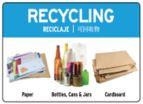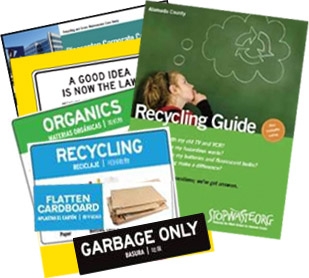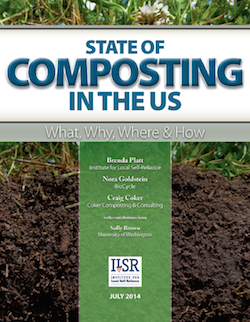Resource Library
 Signage
SignageThe Garbage sticker is 2” by 7” and is intended for use on indoor containers and can help employees, customers or contractors see with a glance what types of materials belong in each container. These labels are not for placement on outdoor hauler/service provider collection containers.
Read More Signage
SignageThe Recycling sticker is 7” by 4.5” and is intended for use on indoor containers and can help employees, customers or contractors see with a glance what types of materials belong in each container. These labels are not for placement on outdoor hauler/service provider collection containers.
Read More Kits
KitsIt’s easy to recycle and prevent waste before it’s produced. Use these convenient, concise resources to take your business waste reduction to the next level.
Read More Kits
KitsIt’s easy to recycle at work. Use these convenient, concise step-by-step resources and you’re off to a great start.
Read More News | 07/14/2014
News | 07/14/2014Composting reduces waste and builds healthy soil to support local food production and protect against the impacts of extreme weather, from droughts to heavy rainfall.
Read More
The San Francisco Department of the Environment maintains this list of distributors of compostable products, such as plates, cutlery, and to-go containers. Includes distributors’ contact information.
- Videos
Published on May 1, 2014
Food scraps become nutrient-rich compost that's used to grow crops on farms, like Terra Bella Family Farm in Alameda County.
This document provides guidance about the purchase and placement of internal recycling containers, including a short list of vendors that offer competitive pricing.
- Reports
In 2000 and 2001, the Alameda County Waste Management Authority (ACWMA) gathered weight data on waste disposed from over 1,500 businesses comprising four commercial waste collection routes in Oakland and Hayward. In addition, the ACWMA commissioned a waste characterization study that included analysis of the composition of waste from 260 of the businesses for which weight information was collected. This report provides a summary of the study, reports on our statistical analysis of the data, and draws conclusions regarding the data’s usefulness and applicability for diversion program planning.
Read More - Reports